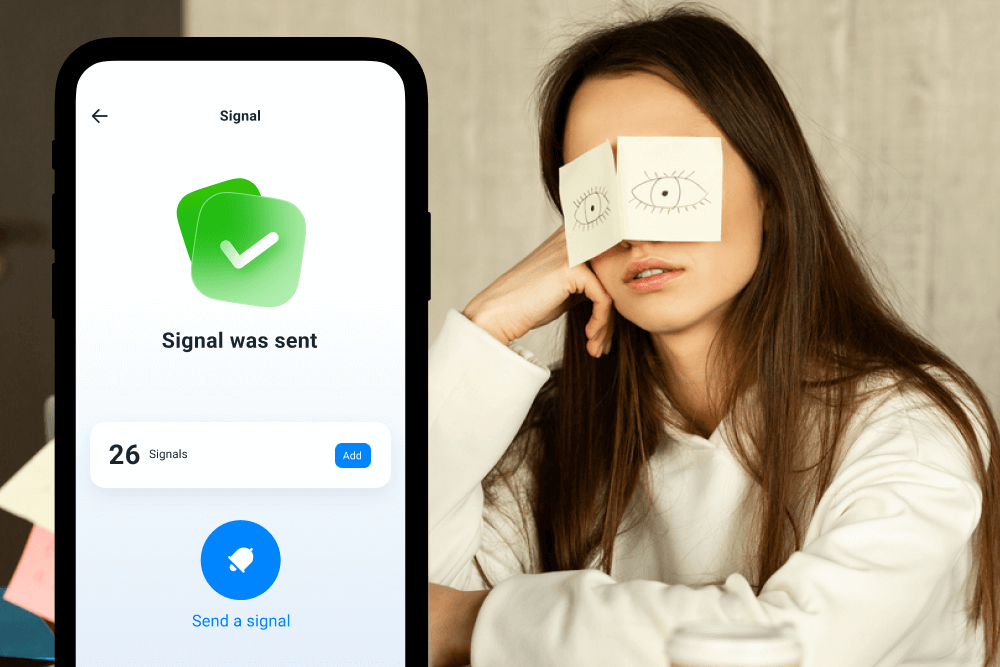How to Wake Someone Up (Especially Kids and Teens)

The clock is ticking, and your teen is still in bed, sleeping deeply, when they should be getting ready for school. We’ve all seen those sitcoms where the parent pours cold water or pulls the blankets away from a sleeping child and laugh about it.
But in reality, this definitely isn’t how to wake someone up, especially kids and teens—instead, there are other, more impactful ways to get them up in the morning that can start them off on a good day.
Contents:
- Why It’s So Hard to Wake Someone Up
- How Much Sleep Do Kids and Teens Actually Need?
- How to Create a Wake-Up Environment and Why It Matters
- Gentle Ways to Wake Someone Up
- Creative Wake-Up Ideas for Teens Who Refuse to Get Up
- When to Be Concerned: Sleep Disorders or Mental Health Issues
- How Screen Time Affects Sleep and Morning Wake-Ups
- Using Technology to Wake Someone Up
- Fun Family Morning Rituals That Make Waking Up Easier
- FAQs
Why It’s So Hard to Wake Someone Up

Prostock-studio/Shutterstock
How many times have you gone into your kids’ rooms to try to wake them up? Two or three each morning, maybe. You start to get frustrated that your kids won’t respond to a gentle nudge or even their alarm clock. So, you began to wonder, why is it so hard to wake someone up?
Well, there are a few factors to consider.
The Sleep Cycle
Everyone goes through what’s called the sleep cycle. This is a 90-minute cycle with four main stages:
- Light Sleep: The “drifting off” stage, where muscles relax, breathing slows, and the brain begins to transition into sleep.
- Deeper Light Sleep: The body temperature drops, heart rate slows, and brain activity decreases. This stage makes up about 45% of total sleep for most people.
- Deep Sleep: This is the deepest form of sleep, where your body repairs itself (muscles, immune system, hormones, etc.) and is the most restorative type of sleep.
- REM Sleep: This is the stage where you dream. You’ll know that someone is in this stage when they experience rapid eye movement.
The easiest stages to wake someone up are during the first two: Light Sleep and Deeper Light Sleep. This is because the brain hasn’t yet fallen into deep sleep, and the body is still alert enough to wake up easily.
However, if you try to wake someone up during the Deep Sleep or REM (rapid eye movement) Sleep stage, then it can take much more than a gentle nudge to get them to rouse from their slumber. Waking up during these stages could lead to sleep inertia, which is when you feel extremely groggy.
Sleep Deprivation
If your teen or child is sleep-deprived, it can be much harder to wake them.
When someone is overtired, the brain protects itself by promoting extra deep sleep the next time they fall asleep. The Deep Sleep cycle lasts longer than usual, making it difficult to wake someone from it. Plus, with the nervous system already very sensitive during this stage, abrupt wake-ups can feel more jarring and stressful.
Teenage Biological Clocks
A teenager’s biological clock works a little differently than an adult’s (or even a child’s). They tend to run on a delayed sleep phase, especially during puberty when the brain releases melatonin much later in the day.
Adults usually get a natural burst of melatonin around 9 or 10 p.m., whereas teenagers experience it around 11 p.m. or 1 a.m., which makes them fall asleep later. But this also means that their brains want to wake up later, too.
And because they are going to bed later naturally, their Deep Sleep window shifts later into the night. This makes it much more challenging to wake up. In some cases, teens might not even hear their alarm clock (even if there are loud alarm tones and sounds) going off when they are in a deep sleep.
Poor Sleep Hygiene
When kids and teens don’t know how to wind down for the night properly, it can lead to sleep issues. But once they finally do fall into that deep sleep, they might stay there for a while, making it even harder to wake them up in the morning.
Poor sleep hygiene looks a bit like this:
- Light coming into the room
- A room that’s too warm
- Using screens right before bed
- Staying up even when they feel tired
While some people are natural night owls and tend to stay up late, it’s essential to have a proper sleep routine. This helps them get the rest they need and makes it easier to wake up in the morning without hitting the snooze button.
How Much Sleep Do Kids and Teens Actually Need?
Kids and teens need more sleep than we do as adults. The chart below explains how many hours of sleep they need by age:
| Age Range | Recommended Sleep per Night |
| 6-9 years | 9-12 hours |
| 10-12 years | 9-12 hours |
| 13-17 years | 8-10 hours |
How to Create a Wake-Up Environment and Why It Matters

Nick Fedirko/Shutterstock
When learning to wake someone up, it’s essential to present a calm, soothing, and gentle way to wake up.
Create a Calming Environment
Gentle music, a gentle nudge, and a sense of calmness are the most effective ways to wake someone up, especially a deep sleeper. Gently pulling someone out of their sleep is the key to starting the day in a good mood. They begin to feel alert while their heart rate slowly speeds up, and they gently wake up.
Avoid Harsh Stimuli
Using loud noises, aggressive physical touch, or bright light is not a great way to wake someone up. These harsh stimuli make the nervous system feel as if it’s under attack. A deep sleeper’s heart rate rises, and they wake feeling scared and fully alert—not the best way for a person to start the day.
Consider a Sunrise Alarm Clock
If you want your child or teen to gently wake up on their own, then consider investing in a sunrise alarm clock. This innovative alarm clock wakes someone by gradually increasing the light before the alarm goes off.
The slow rise in light tells the brain that morning is coming and to start waking up. It eases the body out of a deep sleep instead of yanking it awake like an alarm with sudden loud noises.
Gentle Ways to Wake Someone Up
When learning how to wake someone up, it’s important to also know about gentle wake-up methods, especially if you’re dealing with a deep sleeper.
Use Natural Light or Soft Music
Natural light is a great way to naturally wake up heavy sleepers. It’s in our biology to wake up with the sun (that’s known as our circadian rhythm!). Whether you use a sunrise alarm clock as an artificial light or open the curtains slightly, this is a great, gentle way to wake someone up.
Soft music is another helpful, gentle method. Instead of a blaring alarm app on your teen’s phone, set their alarm to play soft music. Pair this with natural light (or artificial) and you have a recipe for a good morning mood.
Gentle Voice and Gradual Touch
Some parents still want to go in and wake their children up themselves. Rather than standing at the bedroom door and yelling at them to wake up, go to their bed and nudge them gently. Speak soothingly, that it’s time to get up. Soft physical touch, such as a nudge or rubbing their arm, can slowly stir them out of their slumber.
Create a Wake-Up Playlist
There is nothing like waking up to an upbeat, happy song playing to put you in a good mood. Create a wake-up playlist with your child’s favorite music to start playing when it’s time to get up. It’ll set the tone for the rest of the day.
Cook a Warm Breakfast
Remember waking up to the smell of freshly brewed coffee and bacon sizzling in a pan on the weekends? Recreating this breakfast smell experience for your own kids is actually one of the gradual methods to wake them up. It’s great for the weekends when you don’t want them to sleep all day long.
If breakfast isn’t doable every morning, use essential oils in a diffuser. Set a timer for the diffuser to go off in the morning so your child wakes up to the fresh essential oil smell. It can also provide a calming sense, depending on which essential you use.
Let the Pets Help
Have a furry friend in the house? Put them to work! Have your dog or cat help you wake up your children with a few licks here or there, or a warm cuddle. Kids love waking up to their furry friends in the morning.
Creative Wake-Up Ideas for Teens Who Refuse to Get Up

Nick Fedirko/Shutterstock
Teens strive for independence, and sometimes that means that they want to wake up on their own. Below are some creative and gentle wake-up ideas for teens who refuse to wake up in the morning.
Remind Them About Responsibility
Teaching teens responsibility is one of the best things you can do as a parent. And one way to enforce it is by reminding them of their responsibilities for the day.
When you go to wake them up gently, remind them of what they have going on that day. Whether it’s sports practice, school, or a volunteer event, let them know that people are counting on them to show up at a certain time.
Use Tech-Based Tricks
Teens rely on technology—Wi-Fi, their cell phones, etc. Use some tech-based wake-up tricks to get your stubborn teen out of bed.
Some of the best ways to wake them up using technology include:
- Smart Home Lights: You can use smart bulbs to gradually turn on with a warm, soft glow.
- Movement-Based Alarms: Use alarm clocks that require your teen to get out of bed to turn them off; they could scan a QR code with their phone or walk across the room.
- Smart Speaker Wake-Ups: If you have an Amazon Alexa or Google Home, you can set an alarm to start playing gentle sounds, and you can even require your teen to manually shut off the alarm.
- Delayed Wi-Fi: Some parents might even turn off their Wi-Fi at night and turn it on in the morning to motivate teens to go to bed early and wake up when the Wi-Fi comes back on.
Who knows, these tricks might even turn your teen into a morning person.
Give Them Some Control
Teens crave independence. Give them some control over how they want to wake up every morning. Once they show that they are responsible enough to get up on time, work with them to find the best way to wake them up.
When to Be Concerned: Sleep Disorders or Mental Health Issues
Not everyone experiences a good night’s sleep. This can make it much harder to wake them up in the morning, especially when they are heavy sleepers when they finally fall asleep.
Some common sleep disorders among teens include delayed sleep-wake phase disorder, sleep apnea, and insomnia. Signs of sleep disorders include:
- Extreme difficulty waking up
- Loud snoring
- Pauses in breathing
- Feeling sleepy or falling asleep during the day
- Irritability
- Emotional outbursts
- Frequent night wakings
- Trouble falling asleep
If you suspect your teen is having trouble sleeping, talk to your pediatrician about good sleep hygiene and how they can get optimal rest.
Mental health can also factor into sleep issues. Anxiety can keep teens awake or in a light sleep phase, preventing the deep rest they need. Depression can also make teens sleep more and prevent them from wanting to get up in the morning.
Getting a good night’s rest is key to your child’s overall well-being. So, it’s important to take disrupted sleep seriously.
How Screen Time Affects Sleep and Morning Wake-Ups
Screen time, especially before bed, has a major impact on sleep quality. The blue light that screens transmit suppresses the sleep hormone, melatonin. It induces mental stimulation, preventing your child or teen from getting sleepy.
One study found that 30% of children and most teens use social media right before bed. This affects their sleep quality and even delays falling asleep, making it harder to wake up in the morning when their alarms go off. Many will also feel sleepy during the day because of a lack of sleep or disrupted sleep hormones.
Try to set screen time limits for children and teens, especially before bed. This ensures they aren’t exposed to blue light and can fall asleep faster and at a decent hour.
Related: Revealing the 5-Hour Screen Time: What Kids are Doing on Their Phones.
Using Technology to Wake Someone Up
Technology can help when gentle morning routines don’t work—especially with kids and teens who sleep through alarms.
If you’re looking for a loud alarm app, the Findmykids app offers something far more effective: Loud Signal. This feature forces the child’s phone to ring at maximum volume even if it’s on silent, vibrate-only, or Do Not Disturb. It cuts through muted settings instantly and is a reliable way to wake up a heavy sleeper or get their attention when they ignore calls. This is especially helpful for parents who have to leave for work before the kids wake up for school and need a way to pressure them to get up.
Beyond Loud Signal, Findmykids also gives parents real-time GPS tracking, location history, an SOS button, Sound Around, and detailed app-use reports, helping you understand your child’s daily routines and stay connected throughout the day.
The paired Kids360 parental control app can also support healthier mornings and evenings. By setting screen-time limits, bedtime schedules, and morning restrictions, you can help kids fall asleep on time and avoid picking up the phone the moment they wake up.
If you want a stronger wake-up tool and better digital habits in one place, try Findmykids and Kids360.
Fun Family Morning Rituals That Make Waking Up Easier
Waking up is much easier when there is something to look forward to. That’s where family morning rituals can make it much easier for your kids to wake up.
Some fun family morning rituals you can embrace include:
- “Song of the Week” Wake-Up: Choose a song of the week to wake up to with the family.
- Cozy Morning Drinks Together: Sit around the kitchen table with coffee, tea, or hot chocolate and talk about what’s in store for the day.
- Five-Minute Family Stretching: Do a quick, light movement routine like yoga poses or stretching together to wake up.
- “Pick Your Treat” Motivator: Let your kids choose one small morning perk like extra shower time or their favorite breakfast.
- Wake-Up Challenges: Create weekly challenges for the first person to wake up with their alarm; the lasting sleeping person loses the wake-up challenge.
Wake Up Your Kids and Teens the Right Way and Start a Great Day Together
It isn’t easy getting your kids and teens out of bed. But when you understand effective ways to wake them up gently and how their sleep cycles work, you can get them up more easily.
If you found this article helpful, make sure to share it with another friend who also struggles getting their kids out of bed in the morning.
FAQs
How to wake someone up quickly?
A general rule to wake someone up quickly is to use light sources, such as opening the curtains or turning on the bedroom lights. This lets the body know that it’s time to wake up. However, they may still have a bit of sleep inertia at first.
How to wake a heavy sleeper up?
To wake a heavy sleeper, use gradual sensory cues like increasing light, gently touching them, or playing soft music to pull them out of a deep sleep.
References
- Sleep Strategies for Kids, Sleep Foundation, 2025
- A Child’s Need for Sleep, Harvard Medicine Magazine, 2022
- Bedtime routines child wellbeing & development, BMC Public Health, 2018
Cover image: Gladskikh Tatiana/Shutterstock
Проверьте электронный ящик




















